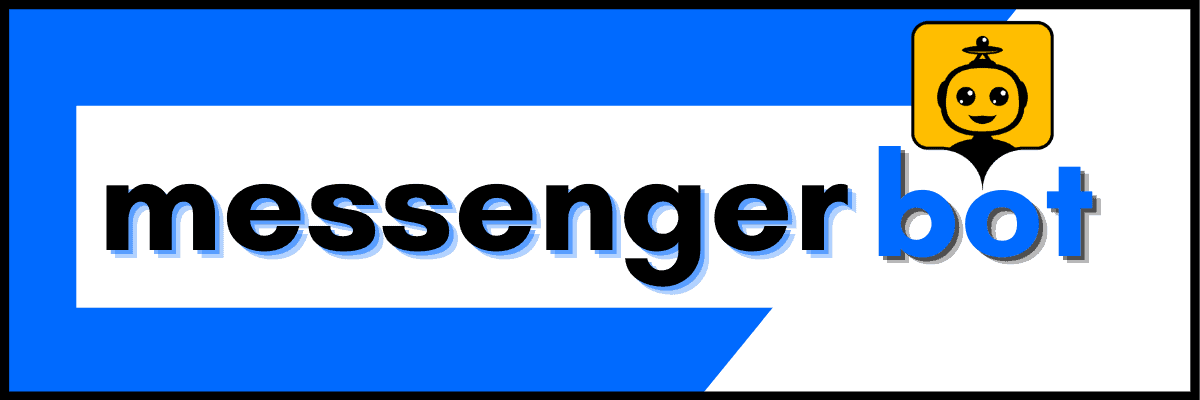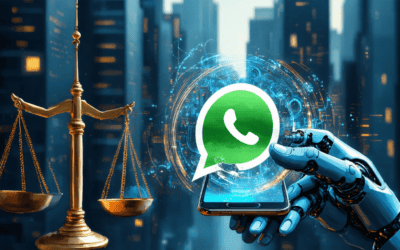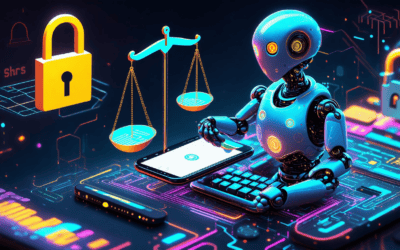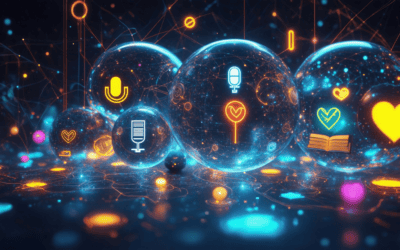In today’s digital landscape, selecting the right bot agency can significantly impact your business’s success. As organizations increasingly turn to chatbots for enhancing customer engagement on chit-chat websites, understanding the costs, benefits, and legal considerations associated with these technologies becomes essential. This article will guide you through the intricacies of choosing a bot agency, starting with an exploration of bot costs and the factors that influence them. We will delve into the functionality of bots, clarifying what they do and how they can elevate user experiences. Additionally, we will address critical issues such as bot trafficking and its implications, the distinction between bots and fake accounts, and the legal landscape surrounding bot usage. Finally, we will provide a curated bot agency list to help you find the right partner for your needs. Join us as we uncover the vital insights that will empower you to make informed decisions in the evolving world of chatbot agencies.
Understanding Bot Costs and Budgeting for a Bot Agency
When considering the implementation of a chatbot for your business, understanding the costs associated with bot development is crucial. The investment in a chatbot can vary widely based on several factors, including the complexity of the bot, the technology used, and the specific needs of your organization. In this section, we will explore the key factors influencing bot development costs and provide a comparison between hiring a bot agency and developing a bot in-house.
Factors Influencing Bot Development Costs
The cost of acquiring a chatbot can vary significantly based on its complexity and functionality. Here’s a breakdown of typical pricing structures:
- Basic Rule-Based Chatbots: These bots, which operate on predefined rules and scripts, typically range from $2,000 to $10,000. They are suitable for simple tasks such as FAQs and basic customer service inquiries.
- AI-Powered Chatbots: More sophisticated chatbots that utilize artificial intelligence and machine learning capabilities can cost between $10,000 and $50,000. These bots are designed to understand natural language, learn from interactions, and provide personalized responses.
- Custom Development: For businesses requiring tailored solutions, custom chatbot development can exceed $50,000, depending on the specific features, integrations, and ongoing maintenance required.
- Subscription Models: Some platforms offer subscription-based pricing, which can range from $50 to $500 per month for basic features, while advanced plans with extensive capabilities may cost upwards of $1,000 per month.
- Additional Costs: Consider potential extra expenses such as hosting, maintenance, and updates, which can add to the overall investment.
For further insights into chatbot pricing and features, refer to sources like Gartner and Forrester, which provide comprehensive analyses of market trends and technology costs.
Comparing Costs: Bot Agency vs. In-House Development
When deciding between hiring a bot agency or developing a chatbot in-house, several factors come into play that can influence your overall costs:
- Expertise and Resources: Bot agencies typically have specialized teams with extensive experience in chatbot development, which can lead to a more efficient and effective implementation. In-house development may require hiring new staff or training existing employees, which can increase costs.
- Time to Market: Engaging a chatbot agency can significantly reduce the time it takes to launch your bot, as they have established processes and tools. In-house development may take longer, delaying the benefits of automation.
- Ongoing Support and Maintenance: Many bot agencies offer ongoing support and maintenance as part of their service, which can save you time and resources in the long run. In-house solutions may require dedicated staff for maintenance, adding to your operational costs.
Ultimately, the choice between a bot agency and in-house development will depend on your specific needs, budget, and long-term goals. For businesses looking to streamline their customer interactions and enhance user experience on platforms like chit-chat websites, partnering with a reputable chatbot agency can provide significant advantages.

“`html
Understanding Bot Costs and Budgeting for a Bot Agency
When considering the implementation of a bot for your business, understanding the associated costs is crucial. A bot agency can provide tailored solutions that align with your specific needs, but various factors influence the overall pricing. By grasping these elements, you can better budget for your bot development and ensure a successful deployment.
Factors Influencing Bot Development Costs
A bot, short for “robot,” is an automated software application designed to perform repetitive tasks over a network, often mimicking human behavior with greater speed and accuracy. Bots operate based on predefined algorithms and can function independently without human intervention. The costs associated with developing a bot can vary significantly based on several factors:
- Complexity of the Bot: More sophisticated bots, such as those utilizing advanced AI and machine learning, will typically incur higher development costs compared to simpler bots.
- Customization: Tailored solutions that meet specific business requirements often require more time and resources, impacting the overall cost.
- Integration Needs: If the bot needs to integrate with existing systems or platforms, such as CRM or e-commerce solutions, this can add to the development time and expense.
- Maintenance and Support: Ongoing support and updates are essential for keeping the bot functional and relevant, which should be factored into the budget.
For businesses looking to enhance their customer service capabilities, partnering with a chatbot agency can provide significant advantages in terms of expertise and resources.
Comparing Costs: Bot Agency vs. In-House Development
When deciding between hiring a bot agency or developing a bot in-house, it’s essential to weigh the costs and benefits of each approach. A bot agency typically offers a team of experts with specialized knowledge, which can lead to faster development times and more effective solutions. In contrast, in-house development may seem cost-effective initially but can lead to higher long-term expenses due to the need for training and potential hiring of additional staff.
Moreover, bot agencies often have access to advanced tools and technologies that can enhance the bot’s functionality, such as Brain Pod AI, which offers various AI-driven solutions that can be integrated into your bot for improved performance.
Ultimately, the choice between a bot agency and in-house development will depend on your specific needs, budget, and long-term goals. For a comprehensive overview of bot solutions, consider exploring our evaluation guide.
“`
“`html
Understanding Bot Trafficking and Its Implications
Bot trafficking refers to any non-human traffic generated on a website or application, primarily by automated scripts or software known as bots. These bots can perform a variety of functions, ranging from legitimate activities like search engine indexing to malicious actions such as scraping content, spamming, or launching Distributed Denial of Service (DDoS) attacks. According to recent studies, bots account for approximately 60% to 70% of total internet traffic, highlighting their prevalence in the digital landscape.
The impact of bot traffic can be significant, as it can skew analytics data, consume bandwidth, and lead to security vulnerabilities. For instance, malicious bots can exploit weaknesses in web applications, potentially leading to data breaches or financial losses. Therefore, understanding and managing bot traffic is crucial for website owners and digital marketers.
The Impact of Bot Trafficking on Digital Marketing
In the realm of digital marketing, bot trafficking can distort key performance indicators (KPIs) and mislead marketing strategies. When bots inflate traffic numbers, businesses may misinterpret their audience engagement and conversion rates. This misrepresentation can lead to misguided marketing investments and ineffective campaigns. To combat this, businesses should implement robust analytics tools that filter out bot traffic, ensuring that marketing decisions are based on accurate data.
Moreover, bot traffic can affect the overall user experience on chit-chat websites. High volumes of bot activity can slow down site performance, leading to frustration among genuine users. By prioritizing the management of bot traffic, brands can enhance their digital presence and maintain a positive user experience.
Legal Considerations Surrounding Bot Trafficking
As bot trafficking continues to grow, so do the legal implications surrounding its use. Many jurisdictions are beginning to enact laws that regulate bot activity, particularly in areas like data scraping and automated interactions. Businesses must stay informed about these regulations to avoid potential legal repercussions.
Additionally, companies should consider the ethical implications of their bot usage. While bots can enhance efficiency and engagement, they should not be used to deceive users or manipulate data. Transparency in bot operations can foster trust and improve brand reputation.
To mitigate the risks associated with bot traffic, consider the following strategies:
- Implement CAPTCHA: Use CAPTCHA challenges to differentiate between human users and bots, especially during critical interactions like form submissions or account registrations.
- Monitor Traffic Patterns: Regularly analyze traffic logs to identify unusual spikes or patterns that may indicate bot activity. Tools like Google Analytics can help in tracking these anomalies.
- Use Bot Management Solutions: Invest in specialized bot management tools that can detect and block malicious bots while allowing legitimate traffic through. Solutions from companies like Cloudflare and Akamai are widely recognized in the industry.
- Rate Limiting: Set limits on the number of requests a single IP address can make in a given timeframe to prevent abuse from bots.
- User Agent Analysis: Examine user agent strings to identify and filter out known bot signatures, thereby reducing unwanted bot traffic.
By implementing these strategies, website owners can protect their digital assets from the adverse effects of bot traffic while ensuring a better experience for legitimate users.
“`
Understanding Bot Trafficking and Its Implications
Bot trafficking refers to the use of automated bots to generate traffic on websites, often leading to significant implications for digital marketing strategies. As businesses increasingly rely on online presence, understanding the nuances of bot trafficking becomes essential for effective marketing and brand management.
The Impact of Bot Trafficking on Digital Marketing
Bot trafficking can distort the effectiveness of digital marketing campaigns. Automated bots can create artificial engagement metrics, leading businesses to misinterpret their audience’s interests and behaviors. For instance, a surge in website traffic driven by bots may falsely indicate a successful marketing strategy, while in reality, it could be a result of non-human interactions. This can lead to misguided decisions regarding advertising budgets and content strategies.
Moreover, bot traffic can skew analytics data, making it challenging for businesses to gauge the true performance of their campaigns. To combat this, companies should implement robust analytics tools that can differentiate between human and bot traffic, ensuring that marketing efforts are based on accurate data. For further insights on enhancing customer engagement through effective analytics, explore our article on evaluating chatbot service providers.
Legal Considerations Surrounding Bot Trafficking
With the rise of bot trafficking, legal implications have also emerged. Many jurisdictions are beginning to regulate the use of bots, particularly in areas such as data privacy and consumer protection. Businesses must be aware of these regulations to avoid potential legal repercussions. For instance, the use of bots to scrape data from websites without consent can lead to legal challenges under data protection laws.
Additionally, companies should ensure compliance with advertising standards that prohibit misleading practices. Engaging in bot trafficking can not only damage a brand’s reputation but also lead to penalties from regulatory bodies. To learn more about the legal landscape surrounding digital marketing, consider reviewing resources from the Federal Trade Commission (FTC).

Can a Bot Make Me Money? Monetizing Bots: Opportunities and Strategies
In today’s digital landscape, the potential for bots to generate revenue is significant. Businesses are increasingly leveraging chatbots and automation tools to enhance their marketing strategies and drive sales. Understanding how to effectively monetize bots can open up new avenues for income, especially for those in the chatbot agency sector.
Successful Case Studies of Chatbot Marketing Agencies
Several bot companies have successfully implemented chatbot marketing strategies that yield impressive returns. For instance, a leading messenger bot agency utilized AI-driven chatbots to automate customer interactions, resulting in a 30% increase in lead generation. By integrating chatbots into their sales funnels, businesses can engage customers in real-time, providing personalized experiences that enhance conversion rates.
Another successful example is a chatbot marketing agency that focused on e-commerce. By deploying chatbots for cart recovery and customer support, they managed to recover abandoned carts, leading to a substantial boost in sales. This demonstrates how effectively designed bots can directly contribute to a company’s bottom line.
Exploring Messenger Bot Agency Revenue Models
When considering how to monetize bots, various revenue models can be explored. Subscription-based models allow businesses to charge clients for ongoing access to chatbot services, while performance-based models can tie earnings to specific outcomes, such as sales generated through chatbot interactions. Additionally, offering tiered pricing for different levels of service can cater to a wider range of clients, from small businesses to large enterprises.
Moreover, partnering with a chatbot agency can provide access to advanced features and analytics, enabling businesses to refine their strategies and maximize profitability. By leveraging data insights, companies can continuously improve their chatbot interactions, ensuring they meet customer needs effectively.
In conclusion, the potential for bots to generate revenue is vast, and with the right strategies in place, businesses can harness this technology to drive growth. For more insights on how to implement these strategies, consider exploring resources on AI-driven customer service bots and their impact on sales.
“`html
Can a Bot Make Me Money?
Yes, a bot can indeed help you generate income, especially with the advancements in AI technology. Here are several effective strategies to monetize AI bots in 2024:
- Affiliate Marketing: Integrate affiliate links within your bot’s responses. When users click on these links and make purchases, you earn a commission. This method can be particularly lucrative if your bot provides recommendations for products or services.
- Ad Revenue: Utilize platforms like Monetizebot to display relevant advertisements within your chatbot. Each interaction can generate income, with potential earnings of up to $0.50 per click. This model allows you to earn passive income as users engage with your bot.
- Subscription Services: Offer premium features or exclusive content through a subscription model. Users can pay a monthly fee for enhanced services, such as personalized advice or advanced functionalities.
- Lead Generation: Use your bot to collect leads for businesses. By engaging users and gathering their information, you can sell these leads to companies looking for potential customers, creating a steady revenue stream.
- E-commerce Integration: If your bot is designed for a specific niche, consider integrating e-commerce capabilities. Users can browse and purchase products directly through the bot, earning you a commission on each sale.
- Consulting Services: Leverage your bot’s expertise to offer consulting services. Charge users for personalized advice or insights based on the bot’s capabilities, especially in areas like finance, health, or marketing.
- Data Monetization: Analyze user interactions and trends to gather valuable data insights. This information can be sold to businesses looking to enhance their marketing strategies or product offerings.
- Sponsorships: Partner with brands to create sponsored content within your bot. This could involve promoting a brand’s products or services in exchange for payment, providing a win-win for both parties.
By implementing these strategies, you can effectively monetize your bot and potentially earn substantial income. For further insights, consider exploring resources like The Ultimate Guide to Chatbot Monetization from HubSpot and How to Make Money with Chatbots on Forbes for more detailed methodologies and case studies.
Successful Case Studies of Chatbot Marketing Agencies
Several chatbot marketing agencies have successfully leveraged AI technology to generate significant revenue. For instance, Brain Pod AI has developed innovative solutions that enhance user engagement and drive sales through their AI-driven chatbots. Their approach includes integrating chatbots into e-commerce platforms, allowing businesses to streamline their sales processes and improve customer interactions.
Another notable example is Messenger Bot, which focuses on automating customer interactions across various channels. By utilizing advanced AI capabilities, they help businesses enhance their customer service and lead generation efforts, resulting in increased revenue streams.
These case studies highlight the potential of chatbot marketing agencies to not only improve customer engagement but also create profitable business models through effective monetization strategies.
“`
Can a bot make me money?
Monetizing bots can be a lucrative venture for businesses looking to enhance their revenue streams. Bots, particularly chatbots, offer various opportunities for generating income through innovative marketing strategies and customer engagement techniques. By leveraging the capabilities of a bot agency, businesses can effectively implement these strategies to maximize their profitability.
Successful Case Studies of Chatbot Marketing Agencies
Several bot companies have successfully utilized chatbots to drive revenue. For instance, a prominent chatbot marketing agency implemented a lead generation strategy through a Messenger bot that engaged users with personalized content. This approach not only increased user interaction but also significantly boosted conversion rates, demonstrating the potential of chatbots in generating sales.
Another example involves a chatbot agency that focused on e-commerce. By integrating a chatbot into their sales funnel, they were able to recover abandoned carts and provide real-time customer support, resulting in a marked increase in sales and customer satisfaction.
Exploring Messenger Bot Agency Revenue Models
Messenger bot agencies typically adopt various revenue models to monetize their services. Common approaches include subscription-based models, where businesses pay a monthly fee for ongoing support and updates, and performance-based models, which charge based on the success of the bot in generating leads or sales.
Additionally, some agencies offer tiered pricing plans that provide different levels of service, allowing businesses to choose a package that best fits their needs and budget. This flexibility makes it easier for companies to invest in chatbot technology without overwhelming upfront costs, ultimately leading to a more sustainable revenue generation strategy.




